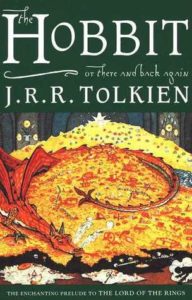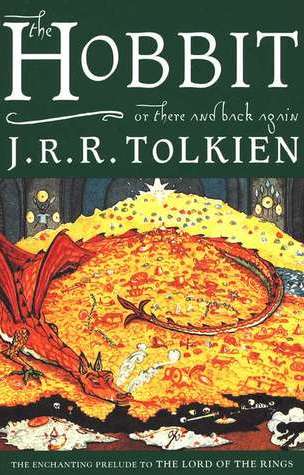Theology and Heroes-Shaping Our Stories By What We Believe
 Every writer’s story has its theology. It may or may not be an intentional theology, yet it is there, inevitably. As a world is built, so are its beliefs. For a Christian, reading fantasy is not simply about reading a good story; it’s about discovering the arc of belief the story tells and discerning its validities and downfalls. To add to our enjoyment of a good story, we have the excitement of holding it up transparently before the Story of God and finding its parallels and tangents.
Every writer’s story has its theology. It may or may not be an intentional theology, yet it is there, inevitably. As a world is built, so are its beliefs. For a Christian, reading fantasy is not simply about reading a good story; it’s about discovering the arc of belief the story tells and discerning its validities and downfalls. To add to our enjoyment of a good story, we have the excitement of holding it up transparently before the Story of God and finding its parallels and tangents.
For a person who loves a character-driven story, this is never so much fun as when looking at the heroes of the story. How do our popular heroes reflect our collective theology? How do some authors break from that homogeny to portray heroes who do not represent our cultural concepts? I especially love how Tolkien unabashedly relies on his belief system to create his concept of a hero.
In The Hobbit, we’re faced with the most unlikely of heroes. Conventional belief would point toward Thorin as the story’s champion. (Certainly Peter Jackson seems to secretly think so.) He is the one with royal heritage. He has the skill, the swagger, and the following to secure his spot. But ultimately he fails, and it’s the little guy who whines about pocket handkerchiefs and drizzle who gets the title credit.
Similarly, though there are numerous heroic characters in the Lord of the Rings trilogy, one “fat hobbit” stands out as Tolkien’s professed hero: Sam, the gardener who knows he will be unsung in the future tales, the one who is scarcely noticed between the time Gandalf pulls him into the story and his return to the Shire. Of all four hobbits, Sam is the least likely to carry the hero’s title. He is certainly the most uncomfortable about it.
These choices don’t simply make for an interesting read with unexpected twists. They say something deeply meaningful about Tolkien’s theology. They tell us that Tolkien favors the same kind of hero God does.
In his quest to find Israel’s next king (hero), Samuel learns God’s methods:
But the Lord said to Samuel, “Do not consider his appearance or his height, for I have rejected him. The Lord does not look at the things people look at. People look at the outward appearance, but the Lord looks at the heart.” (1 Samuel 16.7, NIV)
In choosing Gideon to lead Israel’s army, God knew quite well that he was choosing “the least in my entire family,” and that said family was “the weakest in the whole tribe.” Yet he still calls Gideon “mighty warrior” and tells him he’s intended to be a hero.
God also chooses a frightened young girl to be the Messiah’s own mother.
Tolkien has a firm grasp on the divine definition of hero, and he wields it deftly and unashamedly.
Brothers and sisters, think of what you were when you were called. Not many of you were wise by human standards; not many were influential; not many were of noble birth. But God chose the foolish things of the world to shame the wise; God chose the weak things of the world to shame the strong. God chose the lowly things of this world and the despised things—and the things that are not—to nullify the things that are, so that no one may boast before him. (1Corinthians 1.25-29)
This is completely backward from the philosophy that brings us heroes like Katniss Everdeen and Thor. They come prepackaged for their deeds. Not necessarily willing, but ready. Like Thorin, they have the skills and the guts. Where comic book authors and modern writers with “modern” theology handpick the capable, Tolkien would have chosen the timid little sister or the real Clark Kent to achieve the impossible.
The choice seems quaint, even naïve to some decades later. Yet that choice lies deep in his theology, not simply his story-telling prowess. It’s the choice that allowed, rejoiced in, Merry and Eowyn’s pivotal victory on Pelennor. The two “excess baggage” characters save everything. It’s the same theology C. S. Lewis shared that chose Lucy Pevinsie to save Narnia.
Why is this such an appealing theology that it has remained popular while other fantasy works have dwindled? Yes, partly because Tolkien is a master. Also, because readers can see themselves, and seeing themselves in the everyman heroes, have hope for their own ability to act heroically. The hero who is chosen not because he or she is proficient but because he or she is willing—offers hope for our own possibilities.
Where is the wise person? Where is the teacher of the law? Where is the philosopher of this age? Has not God made foolish the wisdom of the world? For the foolishness of God is wiser than human wisdom, and the weakness of God is stronger than human strength.” (1 Corinthians 1.19-20)
Every story tells a tale of what its author believes. What we believe about our heroes shapes how we look for them, and what we ultimately find. Judging by the plethora of movies favoring words like Avengers, Guardians, and Justice, we are a culture seeking heroes. In a post-Christian, hyper-sold, cynical culture, we look for them in supernatural, super-powered ways, because our ability to believe in human heroes has suffered nearly-mortal assault.
The methods Tolkien, and Lewis, used decades ago reflect a different belief—one we could use to recapture faith in our world.
Jill’s love for hobbits and elves comes from her time as a literature teacher and as a lifelong reader of great stories. She also loves an epic challenge and a chance for grace wherever they exist. Jill is Pastor of Discipleship at Resolution Church in Illinois. She is the author of the young adult devotional Hobbits, You, and the Spiritual World.
Learn more about Jill at her website, blog, Facebook, Twitter, and Google+.





























Excellent post.